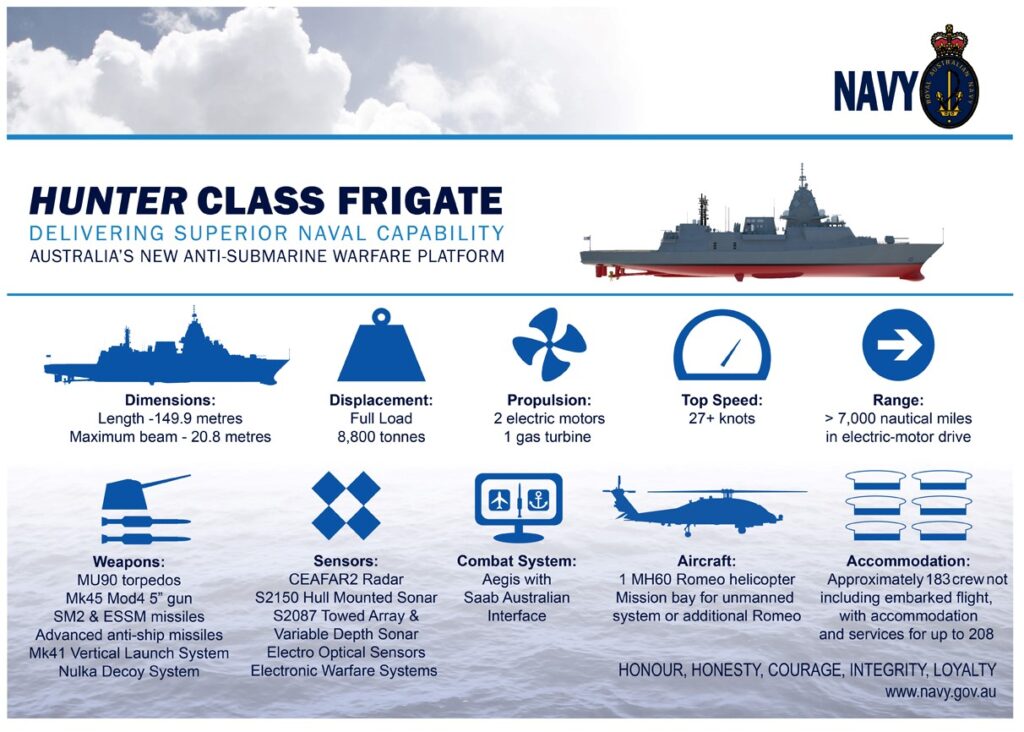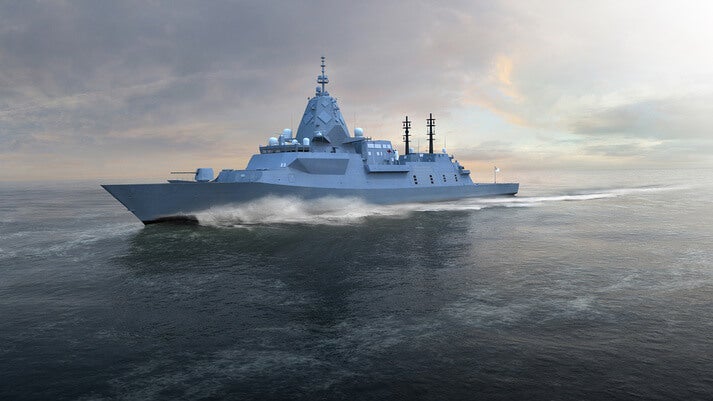Australian Defense admits fault in $45 Billion (AUD) Frigate Purchase
Earlier in May, the Australian auditor-general published a “scathing” report finding the nation’s future frigate program was mishandled and tinged with favouritism. Signed in 2018, under Australian Prime Minister Malcolm Turnball, it intended on delivering 9 frigates for service by the late 2020s. These would replace the navy’s aging ANZAC Class vessels in operation since 1996.
Specifically, the report identifies an 18-month delay and additional costs, brought about by “design immaturity”. Now totalling $45 billion AUD/$29 billion USD, (originally $35 billion AUD) defence has furthermore received criticism for failing to maintain key documents and its choice in BAE. Originally Italy and Spain were competing for a bid at building Australia’s future frigate, but both fell short. According to the report though, defence records show initial assessments concluded both the Italian FREMM and Spanish Modified F-100 designs were better choices for Australia. Criticism is aimed at how defence specifically conducted a cost assessment of the bids, failing to “conduct an effective limited tender process”.

Defence Secretary Greg Morarity this week stated they believed “there was sufficient advice provided to government to allow it to make a value for money assessment”. Nevertheless, they conceded numerous shortcomings, whereas defense didn’t use all the information available during the tender process. Following these statements increasing scrutiny has been placed over the viability of the Hunter Class program. This is in line with the recently published Defence Strategic Review, which may find the perceived value of the vessels non-existent. Furthermore, last week BAE Systems unveiled a significant design overhaul, tripling the number of missile cells onboard. In these regards the future of the program is uncertain, costs increasing, delays likewise, and a new defense policy.

